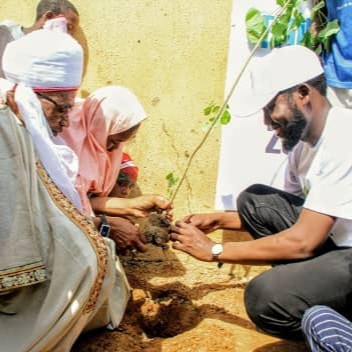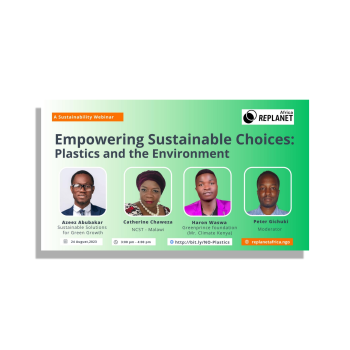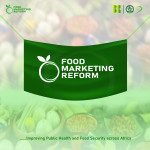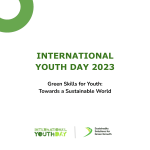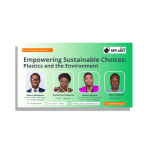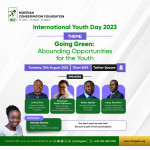The Kurna Community, situated in Northern Nigeria's Kano State, has responded to the impacts of climate change by implementing nature-based solutions, chiefly afforestation using their indigenous resources.
This community, highly susceptible to climate-related challenges such as extreme heat, has been grappling with adverse socio-economic consequences caused by climate change over the past two decades. Reduced agricultural yields and constrained business growth are among the consequences they've faced.
Initiative Led by Locals and Rooted in Nature
Dr. Dahiru Muhammad Hashim, the brainchild of the Panacea Foundation and a native of Kurna, is a medical professional who observed a surge in respiratory ailments due to deteriorating air quality, primarily linked to deforestation-induced air pollution. Concurrently, climate change-induced extreme events began affecting agriculture. Dr. Dahiru and other community members initiated the Afforestation Drive project, a locally-driven endeavor aimed at mitigating climate change's impact on health, food, and agricultural systems through innovative nature-based solutions like tree planting.
Dr. Dahiru explained, "Trees play a vital role in cleaning the air, absorbing CO2, and releasing oxygen. Without trees, the air in Kurna local community was polluted and unhealthy to breathe, leading to an increase in respiratory problems and other health issues."
Harnessing Digital Tools and Local Resources for Afforestation
To combat these issues, the Kurna community embarked on a tree planting mission to alleviate extreme heat, act as windbreaks, and enhance air quality. Dr. Dahiru and his organization, the Panacea Foundation, facilitated this by establishing local partnerships that shifted the paradigm from top-down approaches to one where local actors wielded greater power and resources to bolster climate resilience.
They ensured transparency and accountability by creating an open-source data collection application (https://www.kobotoolbox.org/) for monitoring tree planting, humanitarian crises, and other climate and environmental concerns. This digital innovation not only helped track the number of trees planted but also safeguarded rare indigenous trees threatened by the climate crisis. The initiative fostered greater collaboration between the Kurna community and private sector investments, enhancing efficiency and best practices. The community leveraged its local resources and knowledge to ensure that the 2,000+ planted trees were more adaptable and resilient to drought and heatwaves.
Boosting Economic Growth and Resilience
The initiative empowered rural and smallholder farmers in the community to access improved tree seedling varieties that were suited to their changing climate. These farmers also tapped into local resources to nurture the planted trees, among other endeavors. Beyond improving air quality, these trees created livelihood opportunities for rural residents, who now earn income from trading food crops like maize and rice. The resulting sustainable economic growth has invigorated local businesses and fortified the community's resilience in the face of a changing climate.
Dr. Dahiru elaborated, "The orchards planted in the Kurna community by Kurna people are not only fostering an enabling atmosphere in schools and homes for sustainable production practices, but they are also starting to supply the community with fruits that are offered at a discounted price while also generating revenue."
Just a few years ago, people in rural areas couldn't stay outdoors at night due to rising air temperatures. Today, these trees provide fresh air and have a cooling effect on the environment. Dr. Dahiru added, "I also noticed a drop in cases of respiratory diseases in my community." This locally led adaptation initiative has granted community members more direct access to resources and decision-making power. It has also served as a blueprint, with other local communities in Kano State replicating it, resulting in a total of 135,382 trees planted and monitored via the online data kits.
Addressing Local Challenges
However, the Kurna community faced several obstacles, including a lack of technical knowledge, capacity-building programs, funding, local government bureaucracy, coordination issues, and transparency and accountability concerns in executing their locally led adaptation initiative. To surmount these hurdles, the community joined forces with local stakeholders to develop capacity-building programs with the support of local authorities, enhancing their ability to plant improved tree seedlings that could adapt to rising air temperatures caused by climate change. Bureaucratic hurdles were overcome by leveraging partnerships with entities such as the Forestry Department and local institutions, which facilitated finance access for local actors.
This Locally-led Adaptation project aims to empower the Kurna community to devise and implement solutions effectively, equitably, and transparently by transferring power to local stakeholders. Nevertheless, Dr. Dahiru emphasized that the community still requires more support from the local government, particularly regarding just transition (green jobs) policies to enhance resilience in the face of climate vulnerabilities. He also highlighted the need for a shift in attitudes across all sectors and levels to foster investments in local capacities and promptly address climate impacts.
Moving Forward
Dr. Dahiru stressed the necessity for local governments to acknowledge the shared responsibility of safeguarding the environment and addressing the climate crisis urgently. He called upon more private sector companies to prioritize community needs over business interests and uphold corporate social responsibility by supporting locally led adaptation initiatives. In conclusion, he emphasized that local community members and authorities should collaborate to address structural inequalities affecting marginalized groups, including women, youth, children, people with disabilities, displaced individuals, indigenous peoples, and marginalized ethnic communities.
About the Interviewee
Dr. Dahiru Muhammad Hashim is a 29-year-old doctor born and raised in the Kurna. He completed his medical studies from Egypt. In early 2018, Dr. Dahiru co-created of a community-based organization, Panacea. Their focus has been on planting trees for adaptation and ensuring sustainability through climate awareness and advocacy. In 2020, they were able to plant well over 5,000 tree seedlings through their project called the ‘Kano Afforestation Drive’. In 2022, they partnered with the Forestry Research Institute of Nigeria (FRIN) to plant 100,000 trees across Kano, Jigawa, Katsina, Plateau, and Kaduna. It is for this effort that they were nominated by the Nigerian Government to attend the COP27 – UN Climate Change Conference in Sharm El-Sheikh, Egypt.
Also published: https://www.icccad.net/voices-from-frontline-p2/trees-of-hope-how-kurna-people-planted-trees-to-adapt-to-the-climate-crisis/
